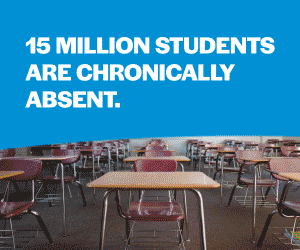 Israel Collazo, a student at Davis Aerospace and Maritime High School, one of a few Cleveland schools with a year-round schedule protests the district’s decision last month to end summer classes. (Rueben Bell)
Israel Collazo, a student at Davis Aerospace and Maritime High School, one of a few Cleveland schools with a year-round schedule protests the district’s decision last month to end summer classes. (Rueben Bell)
The Cleveland school district is ending its 15-year attempt to use year-round classes to improve student learning in some schools, deciding last week to drop what the district and some experts once viewed as the best way for students to avoid the so-called “summer slide.”
Year-round schooling, which gained popularity in the 1970s, avoids long summer vacations in which students can forget much of what they learned during the school year. Under the plan, students attend classes as part of a normal grading period most of the summer. Their school years aren’t much longer than with a traditional schedule, just spread out differently, with their lost summer vacation days added to other breaks during the school year.
Cleveland’s move comes as some states like South Carolina and Florida have recently embraced or are trying out the approach, along with districts hoping to address pandemic learning loss. The number of schools using year-round schedules nationally fell from about 6% in the 1970s to under 3% before the pandemic, researchers report.
In Cleveland, previous district leaders once considered year-round school a promising way to turn around the struggling district. But it caught on in just six of Cleveland’s high schools, and new school leaders now want all district schools on the same calendar and curriculum so students aren’t lost if they change schools.
Leaders also aren’t convinced year-round school is helping. A district study this year with researchers from Cleveland State University and the American Institutes for Research showed the city’s year-round schools often have higher math and English scores than other high schools, but mostly because the schools have more gifted students and students who would do well with any schedule. Research nationally is also mixed.



























